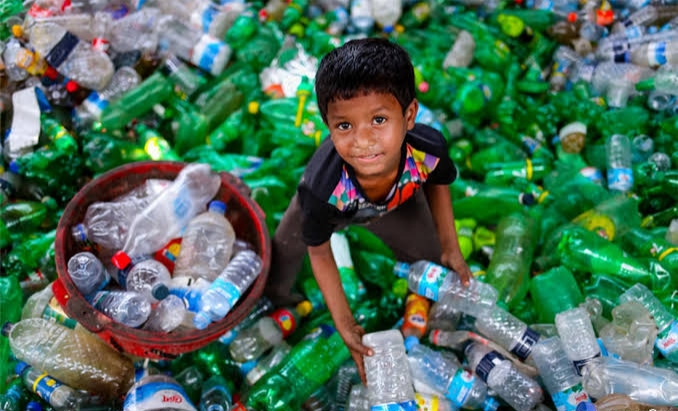Staff Correspondent
Published:2021-12-13 04:13:55 BdST
Govt to implement an action plan for sustainable plastic management: Environment Minister
The Ministry of Environment, Forest and Climate Change is going to implement an action plan for sustainable plastic management in phases.
The plan has been set as short term (2022–23), medium term (2024–26), and long term (2027–30).
The Environment Ministry has endorsed a roadmap through gazette notification to phase out single-use plastic in coastal areas.
The environment minister said this while attending as the chief guest a webinar on High level Policy Dialogue on the Global Agreement on Marine Litter & Plastic Pollutions for the upcoming fifth session of the United Nations Environment Assembly- UNEA 5.2 organized by Environment and Social Development Organization (ESDO) on Saturday Evening.
Implementation of the action plan identifies policy and regulatory reforms and economic instruments, technology and infrastructure, and capacity building to design sustainable products, promote circular economy processes, encourage sustainable consumption, and thus ensure the waste management. The Action Plan is aligned to the 8th five-year plan, Sustainable Development Goals (SDGs) and other policies.
He said the ministry banned the use of plastic shopping bags, but this had limited results. In 2010, “Jute Packaging Act” was enacted to combat the use of plastics. The 8th Five-Year Plan (2020–2025) acknowledges that the dumping of household waste into water bodies and neighborhoods is a major source of air and water pollution.
Proposed Solid Waste Management Rules-2021 have drawn up under the Environmental Conservation Act 1995, which will be the overarching regulatory framework for plastic waste management in the country.
Shahab Uddin said in the Ministerial Conference on Marine Litter and Plastic Pollution under the UN Environment Assembly, that Bangladesh emphasizes that global solidarity and the involvement of all stakeholders must be guiding principles.
Bangladesh also highlights the necessity for a Global Agreement, aligned with the 2030 Agenda to achieve the elimination or minimization of all negative impacts of plastic throughout its life cycle, including the significant reduction and progressive elimination of direct and indirect discharges of plastic into the environment, sustainable alternatives and the reduction of virgin plastic production.
Former Secretary & ESDO president Syed Marghub Murshed chaired the webinar while the Japanese Ambassador to Bangladesh ITO Naoki and Additional Secretary (Environment) Md. Moniruzzaman spoke among others.
ESDO Secretary General Dr. Shahriar Hossain conducted an open discussion session where different experts and professors shared their opinion in plastic management at the webinar.
Unauthorized use or reproduction of The Finance Today content for commercial purposes is strictly prohibited.


